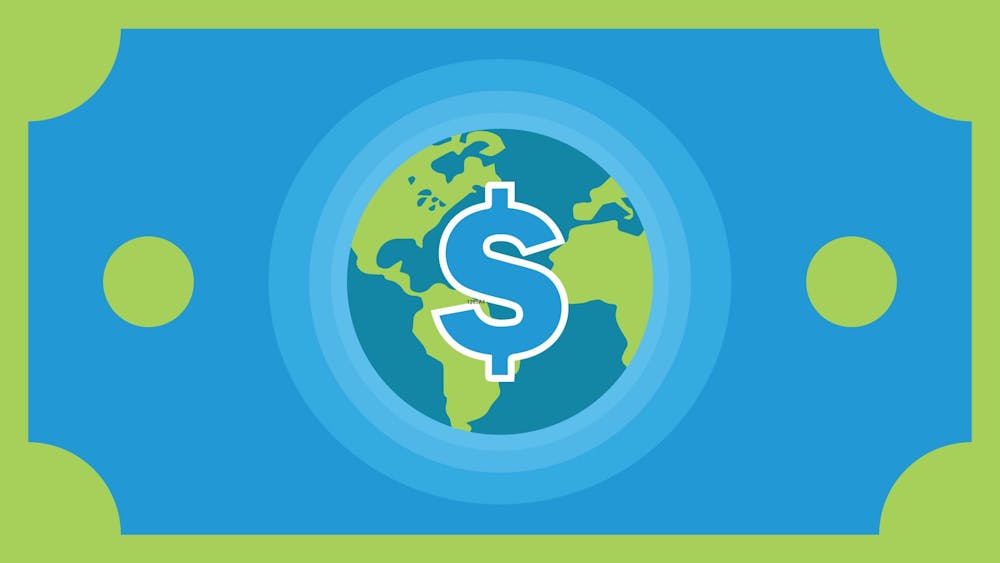Last year, Penn’s endowment ballooned to $20.5 billion dollars. Departing president Amy Gutmann raised over $10 billion in donations in her 18 year tenure. Every few months we hear about how Penn is spending these vast sums. But there are far better uses of any money you plan to give to Penn now or in the future.
Today, roughly 700 million people globally are living in extreme poverty — defined by The World Bank as earning less than $1.90 a day, and the pandemic has only worsened this crisis. Such levels of deprivation are thankfully unimaginable to nearly all of us reading this newspaper. But that doesn’t mean they do not exist. It is important to remember that despite all the economic progress of the past two hundred years, people in vast swaths of the world suffer through no fault of their own but from the circumstances they were born into. Geographic inequality is hugely under-appreciated in the rich world where even a minimum wage job would put you well above-average globally.
The key point is that a dollar goes much further in poverty-ridden regions like sub-Saharan Africa and South Asia. It goes even further if you donate to the right charities. The difference between an ineffective donation and an effective one is not a percentage point this way or that way, but orders of magnitude. Fortunately, economists such as Abhijit Banerjee, Esther Duflo and Michael Kremer, who shared the 2019 Nobel Prize in Economics, have developed ways to identify the best measures to reduce poverty and save lives. Ideas like direct cash transfers, anti-malaria bed nets, and child deworming have been proven in randomized controlled trials to be the best ways to achieve these goals of reducing poverty and needless deaths — things we should all want.
We know these measures work, so how can you donate to them? One for the World, which was founded at Wharton eight years ago, convinces students to pledge 1% of their post-graduation income to the five most effective charities as ranked by GiveWell, a charity aggregator. The average Penn graduate earns over $80,000, so they would donate $800 per year — the cost of having one Starbucks coffee everyday in America, but also enough to buy 32 bednets or 222 deworming treatments. As the current co-president of One for the World’s Penn chapter, I know that every semester we get one or two dozen current students to pledge. But looking at that endowment, I also know the Penn community can do dramatically better.
Penn spent $163 million on a shiny new dorm that mostly houses sophomores, many of whom don’t even want to live on campus but are required to. It will no doubt spend hundreds of millions of dollars in coming years on more impressive buildings. But when you donate to Penn you should know that you are intentionally or unintentionally ignoring how far a dollar goes somewhere else. This column is not meant to disparage Penn, a world-class institution that is on the cutting edge of many fields, but to illustrate that we must rethink charitable giving. The Red Cross raised $500 million after the 2010 earthquake in Haiti to build houses, but only six houses were actually built. The Make-A-Wish Foundation can spend thousands of dollars on fulfilling a single wish. After the education you receive at Penn, your donations should not be driven by ego or sentiment but by facts. From a finance perspective it’s about return on investment. In economics, you might call it efficiently allocating resources. Philosophically, it comes down to doing the most good possible.
In the long run people are lifted out of poverty by good governance and economic growth. I come from a country on the verge of sovereign default, so I know the devastating effects of mismanagement. But in the short run there is a lot of suffering we can eliminate with minimal harm to ourselves. Pledging 1% means you still get to keep 99% of what you earn. The average American donates 2% of their income to charity, so I would urge you to aim even higher. Penn has an entire office whose job it is to grow the endowment in perpetuity. It will be fine without your donations — but millions of people around the world will not be.
AMJAD HAMZA is a Wharton junior studying Business Analytics from Colombo, Sri Lanka. His email is amjadhmz@wharton.upenn.edu.









